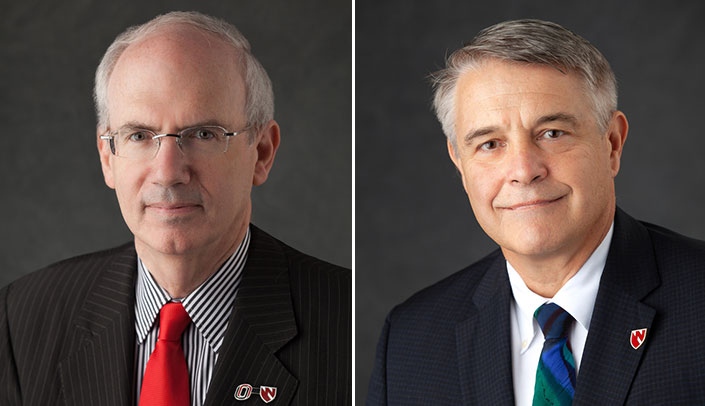As news of COVID-19 evolves, leaders emphasize that UNMC and Nebraska Medicine have worked and continue to work behind the scenes to plan and prepare for the spread of the novel coronavirus. Models suggest cases of COVID-19 may peak between April and June in the U.S.
“We have been meeting regularly to discuss and plan for a range of ‘what if’ scenarios,” said UNMC Chancellor Jeffrey P. Gold, M.D. “There are multiple groups meeting across campus, as well as with our University of Nebraska counterparts and UNMC divisions across the state, to revisit and refresh our preparedness plans.”
Nebraska Medicine and UNMC have an experienced pandemic preparedness task force that meets weekly and includes a dozen workgroups, each with an important focus. Those include, but are not limited to:
- Plans to manage an influx of patients requiring care and hospitalization;
- Business continuity plans in the event of large numbers of absences due to illness, as well as resources for working remotely; and
- Plans for students to continue classes remotely.
Jim Linder, M.D., CEO of Nebraska Medicine, said all patients who check in for any medical appointment are asked a series of questions about their recent travel, and staff follow current Centers for Disease Control and Prevention guidelines for risk assessment and management.
Among the UNMC groups meeting regularly are:
- An education committee, led by Gary Yee, Pharm.D. The group works closely with UNMC’s existing education counsel and is discussing continuity of coursework for degree- or certificate-conferring health professions programs and graduate programs.
- A research committee, led by Tess Kuenstling, Ph.D., to discuss continuity of research on campus, as well as with collaborators elsewhere.
- The Office of Global Engagement, led by Jane Meza, Ph.D., to monitor international and study abroad programs.
Keith Hansen, co-director of the Center for Biosecurity, Biopreparedness and Emerging Infectious Diseases and UNMC’s COVID-19 incident commander, encourages faculty, staff and students to email COVID-19 related-business continuity questions and concerns to the Incident Command mailbox. Submissions will be reviewed and taken into consideration to help guide planning decisions, he said.
“Coordination is key,” Hansen said. “We need to communicate well both among and between all the groups so we are consistent, focused and prepared for the days and weeks ahead.”
Meanwhile, faculty, staff and students also should prepare for the spread of COVID-19 by maintaining medications, a supply of food staples and household supplies and other necessary items in the event that individuals stay home for a short period of time.
It’s also important practice to continue good hand washing, cover your cough/sneeze, and stay home if ill.
Visit UNMC’s COVID-19 resources page.
